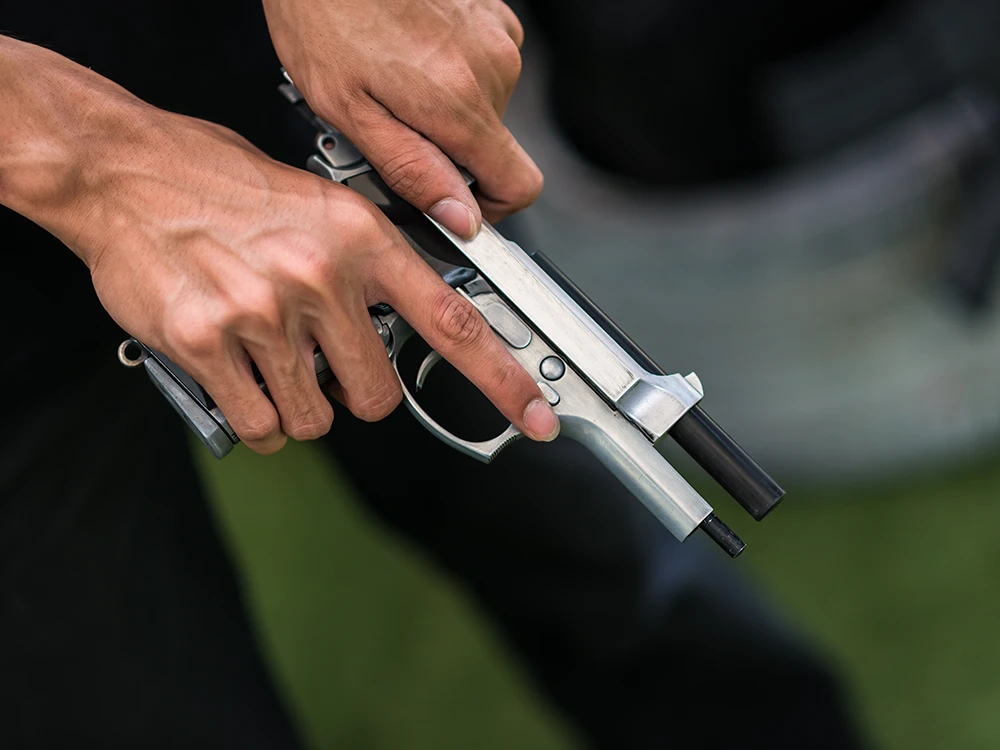In Florida, certain repeat offenders may be sentenced more harshly under the state’s “violent career criminal” statute. When prior convictions are used to enhance a sentence, disputes often arise over whether those convictions qualify under the law. Recently, the Florida Supreme Court issued a decision that clarifies how courts interpret predicate offenses in violent career criminal cases, particularly where juvenile escape convictions are involved. If you are facing serious firearm charges or enhanced penalties, it is critical to consult with a Tampa criminal defense attorney who can evaluate your record and protect your rights.
History of the Case
It is reported that the defendant was convicted by a jury of being a violent career criminal in possession of a firearm. The incident arose in 2019 after the defendant allegedly brandished a firearm during an argument and discharged multiple rounds into the air.
Allegedly, the State sought to establish the defendant’s status as a violent career criminal by presenting evidence of three prior convictions: aggravated battery in 2012, burglary in 2005, and escape in 1995. The defendant did not dispute that the aggravated battery and burglary convictions qualified as predicate offenses under the statute. However, the defense challenged the use of the 1995 conviction, arguing it arose under the juvenile code and did not meet the statutory definition of “escape” for violent career criminal purposes.
It is reported that on appeal to the Second District Court of Appeal, the panel agreed with the defendant that the juvenile escape conviction did not qualify as a predicate offense. Nonetheless, the appellate court affirmed the conviction because the defense had failed to properly preserve the argument at trial. Relying on Florida precedent, the court concluded that the error was not “fundamental” since the evidence supported at least the lesser offense of felon in possession of a firearm.
Allegedly, the defendant sought review in the Florida Supreme Court, urging the justices to reconsider prior precedent on issue preservation and fundamental error. The defendant argued that insufficient evidence on an element of an offense should always be reviewable on appeal, even if not raised below.
Violent Career Criminal Convictions
It is reported that the Supreme Court began its review by examining the statutory framework. Section 790.235(1), Florida Statutes, makes it a first-degree felony for a violent career criminal to possess a firearm. To qualify, a defendant must meet the criteria in section 775.084(1)(d), including at least three qualifying prior convictions.
The central issue was whether the defendant’s 1995 conviction for juvenile escape could be treated as “escape” under section 944.40. The Court concluded that it could. The justices noted that section 39.061, the statute governing juvenile escape at the time, expressly provided that an escape from a juvenile detention facility “constitutes escape within the intent and meaning of section 944.40.” Historical legislative amendments confirmed that the juvenile statute was intended to complement the adult escape provision and ensure that escapes from juvenile facilities were treated as escapes under Florida law.
The court emphasized that the legislature has long allowed both adult convictions and juvenile adjudications to serve as predicate offenses for violent career criminal status. By interpreting the statutes together, the court determined that the defendant’s juvenile escape conviction properly qualified as a predicate offense. Thus, the State had in fact presented sufficient evidence of all three predicate convictions required by the statute.
Because the court found no error in the underlying conviction, it declined to revisit the preservation and fundamental error doctrines that had been argued. The court affirmed the defendant’s conviction and life sentence for being a violent career criminal in possession of a firearm.
Talk to a Tampa Criminal Defense Attorney About Violent Career Criminal Charges
Florida’s sentencing enhancements for violent career criminals carry some of the harshest penalties in the state, including potential life imprisonment. Whether a prior conviction qualifies as a predicate offense can be a complex question of statutory interpretation, and these issues often make or break a case. If you are facing firearm charges or an enhanced sentence based on your prior record, the skilled Tampa violent crime defense attorneys at Hanlon Law can review your case, challenge the State’s evidence, and fight for the best possible outcome. Contact our Tampa office today at 813-228-7095 or complete our online form to schedule a confidential consultation.
 Tampa Criminal Lawyer Blog
Tampa Criminal Lawyer Blog


